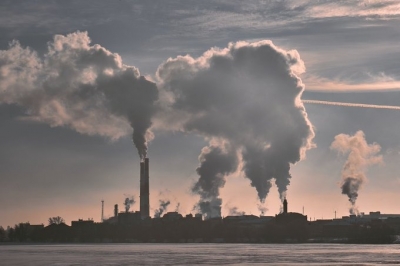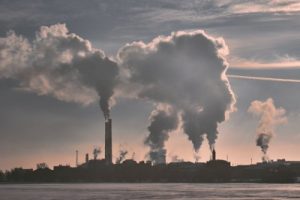
New Delhi, March 9 (IANS) China and India will play critical roles in determining the trajectory of temperature rise, a report by the US intelligence community said, adding that the two neighbours are the first and third largest emitting countries, respectively.
“Both are growing their total and per capita emissions, largely because of their reliance on cheap electricity generation from coal for economic growth, and because of their efforts to appease domestic constituencies who rely on the coal industry for jobs,” the report said.
Climate change will increasingly exacerbate risks to U.S. national security interests as the physical impacts increase and geopolitical tensions mount about the global response to the challenge.
The increasing physical effects of climate change also are likely to intensify or cause domestic and cross-border geopolitical flashpoints, the report said.
As temperatures rise and more extreme climate effects manifest, there is a growing risk of conflict over resources associated with water, arable land, and the Arctic. Additional factors, such as migration, some of which will be exacerbated by climate and weather events, will heighten these risks.
Contested economic and military activities in the Arctic have the potential to increase the risk of miscalculation, particularly while there are military tensions between Russia and the other seven Arctic countries following Russia’s invasion of Ukraine in early 2022.
Geopolitical tensions between countries about how to accelerate reductions in greenhouse gas emissions are likely to grow, and states will compete to try to control resources and dominate the new technologies needed for a global transition to low-carbon energy, the report said.
Tensions also are rising between countries over climate financing. High-and middle-income countries still have not met their 2015 Paris Agreement pledges to provide $100 billion per year to low-income countries by 2020, and low-income countries want more assistance with adapting to climate effects, the US intelligence community report said.
The extent of damage and human displacement in Pakistan that resulted from flooding in mid-2022, which is partially attributed to climate change, has led to more calls for high-income countries to pay low-income countries for losses they perceive are a result of climate change, the report said.
Small island states have been advancing their efforts to bring cases before international judicial bodies to hold the United States and other top greenhouse gas emitters accountable for the effects of climate change.
Climate-related disasters in low-income countries will deepen economic challenges, raise the risk of inter-communal conflict over scarce resources, and increase the need for humanitarian and financial assistance. The growing gap between the provision of basic needs and what governments and the international community can provide raises the likelihood of domestic protests, broader instability, extremist recruitment, and migration.
–IANS
san/ksk/










